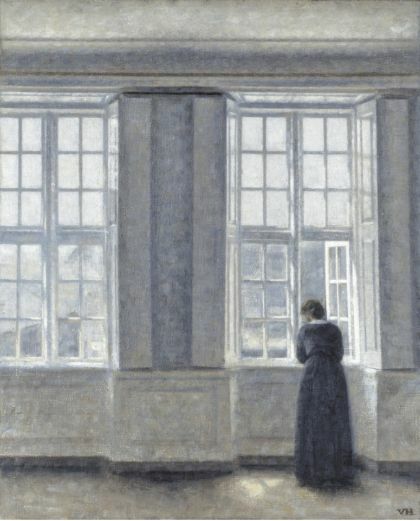
In a well-known sermon from 1987, Dr. E. V. Hill Interspersed with remembering Jane Edna’s life and grieving her loss, Dr. Hill intones Job 1:21, “The Lord giveth and the Lord taketh away, blessed be the name of the Lord.” In this eulogy, Dr. Hill was modeling a Christian response to trials. He appreciates the goodness of his wife (the Lord gave), laments her loss (the Lord taketh away), and looks for God’s refining work in the midst of it all (blessed be the name of the Lord). It strikes me that this is the sort of process Christians need to engage in when it comes to the challenges and tragic losses of COVID-19. “The Lord giveth and the Lord taketh away, blessed be the name of the Lord.”
An important means of sanctifying grace are the circumstances of life. Circumstances alter the conditions of our lives in such a way that God gains unique formational or sanctifying access to our souls. While these circumstances can be positive or neutral, it is often those life-altering events that we categorize as trials and tribulations, suffering and pain that have the greatest potential to open us in new ways to God’s mortifying and vivifying work. These trials that come upon us are what some have called involuntary disciplines as opposed to voluntary disciplines. We do not choose them, they choose us (see 1 Peter 1:6). COVID has been an involuntary discipline for the whole world; a global trial. Christians all over the world, in strikingly divergent ways, have experienced the disorienting and disruptive effects of COVID as well as the social, economic, and political fallout that COVID partly produced and certainly exacerbated.
As followers of Jesus and his way of the cross, what if COVID-19 should be approached more like a refining trial than a source of political divide and public policy disagreement? While needing to approach COVID-19 as a public health crisis, it is also a unique opportunity for the church’s faith to be tested and refined.
But how do we attend a global trial? While there is much to say, let me quickly mention three thoughts. First and foremost, as agents of Jesus’ love, Christians are always meant to move towards those in need. We can’t help but think of Jesus’ teaching of the Good Samaritan. Jesus says of the Samaritan, “when he saw him, he had compassion. He went to him and bound up his wounds” (Lk 10:33). Followers of Jesus are moved with compassion and we cross the road to help those in need.
Second, we lament. As Romans 12 puts it, we “weep with those who weep.” While we do not grieve as those who have no hope, Paul says, we do indeed grieve (1 Thess 4:13). What are our individual and communal laments from this COVID period? Who do we need to weep with and for?
And in the midst of binding up wounds and lament, we also pray, as Elihu puts it towards the end of Job’s story, “Teach us what we do not see” (Job 34:32). We look for how these conditions have exposed our need for God and his people as well as our resistance to God and his people.
James puts the idea well, “My brothers and sisters, consider it nothing but joy when you fall into all sorts of trials because you know that the testing of your faith produces endurance. And let endurance have its perfect effect so that you will be perfect and complete, not deficient in anything” (James 1:2–4 NET). What we consider joy is not the trial itself (that’s masochism), but the anticipated effects of the trial (that’s formation). Eugene Peterson paraphrases James 1 this way: “Consider it a sheer gift, friends, when tests and challenges come at you from all sides. You know that under pressure, your faith-life is forced into the open and shows its true colors. So don’t try to get out of anything prematurely. Let it do its work so you become mature and well-developed, not deficient in any way” (James 1:2–4 MSG).
And yet, it can be difficult to stay put long enough to let tests and challenges grow us up. We are understandably eager to move on from times of pain. How do we attend to COVID conditions in a manner that helps us see our faith-life in all its true colors?
As a tool to help process COVID-19 as a global trial, the has developed an online resource entitled Re-emerging from Isolation. The resource consists of four video conversations and an associated curriculum to be engaged individually or in groups. The materials are arranged around four COVID-related themes: finding God, disrupted meaning, community and isolation, and social upheaval. You can investigate the videos and curriculum here:.
I imagine all of us have had far too much news about COVID. We have COVID-fatigue and we just want it to end. And yet, how much time have we spent before God in prayer about this COVID season? Not simply asking him to bring it to an end—though that is a good prayer—but asking him to “Teach us to see what we do not see” (Job 34:32).
 51ÂÜŔň
51ÂÜŔň

.jpg)

.jpg)
.jpg)